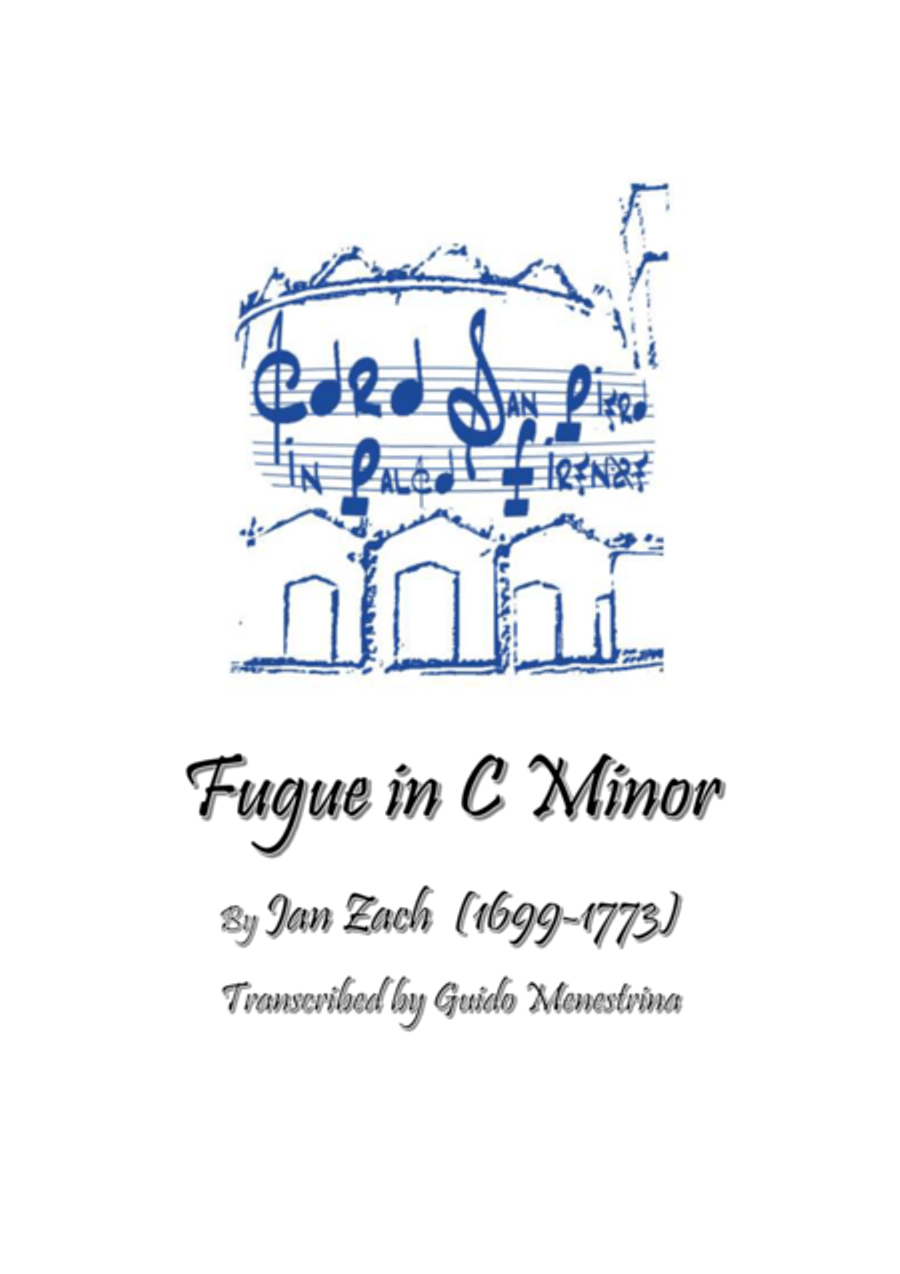Organ - Digital Download SKU: A0.828708 Composed by Jan Zach. Arranged by Guido Menestrina. Baroque. Score. 5 pages. Guido Menestrina #405395. Published by Guido Menestrina (A0.828708). Transcription by Guido Menestrina, follow the score on youtube: https://youtu.be/A0riyf_X3P4 Jan Zach, called in German Johann Zach (baptized 13 November 1699 â 24 May 1773) was a Czech composer, violinist and organist. Although he was a gifted and versatile composer capable of writing both in Baroque and Classical idioms, his eccentric personality led to numerous conflicts and lack of steady employment from about 1756 onwards. Zach was born in Äelákovice, Bohemia into a wheelwright's family. In 1724 he moved to Prague and started working as violinist at St Gallus and at St MartÃn. According to Dlabacž, he studied organ under Bohuslav MatÄj Äernohorský, who lived in Prague from 1720 to 1727. Zach's career as organist started at St MartÃn, and by 1737 he was also playing the organ at the monastic church of the Merciful Brethren and the Minorite chapel of St Ann. In 1737 he competed for the position of organist at St. Vitus Cathedral, but was not successful. Details of what happened next are unknown: he was reported to have left Bohemia, but apparently remained in Prague at least until 1740. By early 1745 he was living in Augsburg and then on 24 April 1745 he was appointed Kapellmeister of the Electoral orchestra at the court of Johann Friedrich Karl von Ostein, Prince-Elector of Mainz. He visited Italy in 1746 and, briefly, Bohemia in 1747.[1] Zach evidently had a complex and eccentric personality, which led to numerous conflicts that plagued his life at Mainz. He was suspended from his position in 1750 and finally dismissed in 1756. From that point on it appears that Zach never again had steady employment. He traveled through Europe and supported himself financially by performing and selling copies of his works, teaching, dedicating his compositions, and so on. He visited numerous courts and monasteries in Germany and Austria, stayed in Italy in 1767 and between 1771and 1772, and may have worked as choirmaster at the Pairis Abbey in Alsace. He stayed several times at the Stams Abbey at Stams, Tyrol, where he may have had connections, and served as music teacher at the Jesuit school in Munich, for several brief periods of time. The last mentions of Zach in contemporary sources indicate that in January 1773 he was at the Wallerstein court, and according to the Frankfurt Kayserliche Reichs-Ober-Post-Amts-Zeitung of 5 June 1773 he died on a journey, at Ellwangen. Zach was buried in the local church of St Wolfgang. Zach's surviving oeuvre comprises a wealth of both instrumental and sacred music: some 30 masses, 28 string sinfonias, a dozen keyboard works and other pieces. Due to the nature of Zach's life it is difficult to establish a precise chronology. His work reflects the transition from the old Baroque style to the emerging Classical music era ideals. Zach was equally adept at strict counterpoint and the style galant, and was also influenced by Czech folk music. Zach was fond of chromatic modulations. Scholar Johann Branberger, writing in the early 20th century, noted Zach's preference for chromatic, and often exotic, themes. Only a few of Zach's pieces were published during his lifetime: a harpsichord sonata (in Oeuvres mêlées, v/6 (Nuremberg, 1759)), a harpsichord concerto (Nuremberg, 1766; GS C13), and the collection Sei sonate for harpsichord and violin or flute (Paris, 1767).
